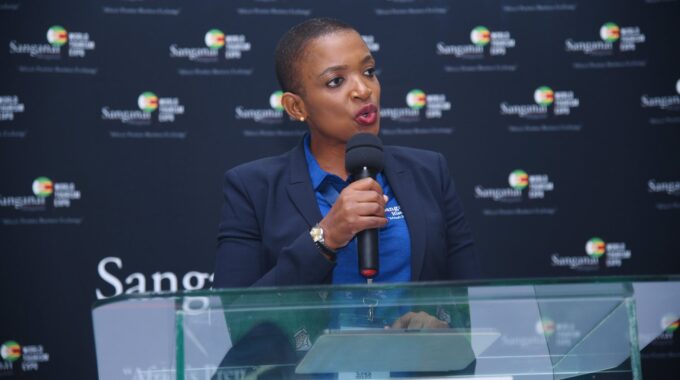Govt to address tourism sector pricing disparities
THE Government is concerned about the high prices charged by operators in the tourism industry, which have made the industry less competitive.
The Government said, through the Ministry of Tourism and Hospitality, it would take appropriate interventions to address the challenges, with special focus on driving domestic tourism.
The high prices affect the affordability of tourism products, and weigh on the growth of domestic tourism in a country where disposable incomes are low.
Domestic tourism contributes to the travel economy and contributes to overall economic growth, especially during global crises and periods of low international tourist arrivals into the country.
Last year, domestic tourism sustained the industry after the outbreak of the Covid-19 pandemic, which prevented foreign travelling due to national lockdowns by countries globally to contain the spread of the respiratory disease.
It can also help restart tourism in specific regions or destinations, while it can also reduce income inequality by raising incomes for people in rural and remote areas.
Further, domestic tourism can help preserve the tourism industry during challenging times, such as during a pandemic, while it presents locals an opportunity to explore and gain deeper understanding of their country.
High charges in the tourism sector have been blamed on the heavy taxing of the industry players and impact of the high cost of utilities on operations.
Analysts say too many taxes levied on the sector players weigh heavily on the local tourism industry as they translate to higher prices compared to the regional average.
Some of the taxes include the tourism business licence fee, national park fee, wildlife fee, Ministry of Transport fee, travel agent permit fee, external tour operators’ permit fee, car hire permit fee, and houseboat permit fee.
Operators are also obliged to remit performance rights fees in terms of the Copyright Act to the Zimbabwe Music Rights Association (ZIMURA) and pay television licence fees for every set in a hotel room.
Furthermore, acts including the Tourism Policy Act, Liquor Act, and Environmental Management Act require operator payment.
Tourism and Hospitality Minister Barbara Rwodzi, during a media engagement this week, decried the high domestic prices, saying this was driving away potential visitors to Zimbabwe, adding that it was detrimental to the growth of the local tourism sector.
“We still have a lot to work on as a sector, our operators are charging more exorbitantly in Victoria Falls and people now prefer to stay longer in Livingstone, Zambia. We have more expensive hotels in Victoria Falls; our food is very expensive compared to Livingstone.
“Because of pricing, tourists now just come using a day pass through Victoria Falls and go back to spend more time in Livingstone,” said Minister Rwodzi.
While addressing stakeholders at the Tourism Bill stakeholder consultation workshop last week, Minister Rwodzi said that her ministry was pushing for a consolidated taxing system that would enhance the competitiveness of the local tourism sector.
“We are talking to the Ministry of Information, Publicity, and Broadcasting Services so that we come up with one licence ,for instance ZBC needs a licence for every TV set in a hotel room, what if I have 200 rooms, it becomes difficult. TV licences and all other fees should be taken from one place, and players do not need to come to Harare for that, but every province must have that office.”
Experts are on record urging the Government to review some of its tax system for the industry, saying it was translating into high prices charged by operators.
Prices charged by some mediocre local hotels equate to those charged by some top hotels in the world, which makes destination Zimbabwe uncompetitive.
Tourism is one of the key sectors in Zimbabwe, accounting for about 5 percent of gross domestic product and employing thousands while also supporting various value chains.
Zimbabwe generated US$1,25 billion from tourism in 2018 while foreign arrivals totalled 2,6 million. Receipts recovered from US$911 million, following the Covid-19 pandemic, to US$1,1 billion last year.
herald











